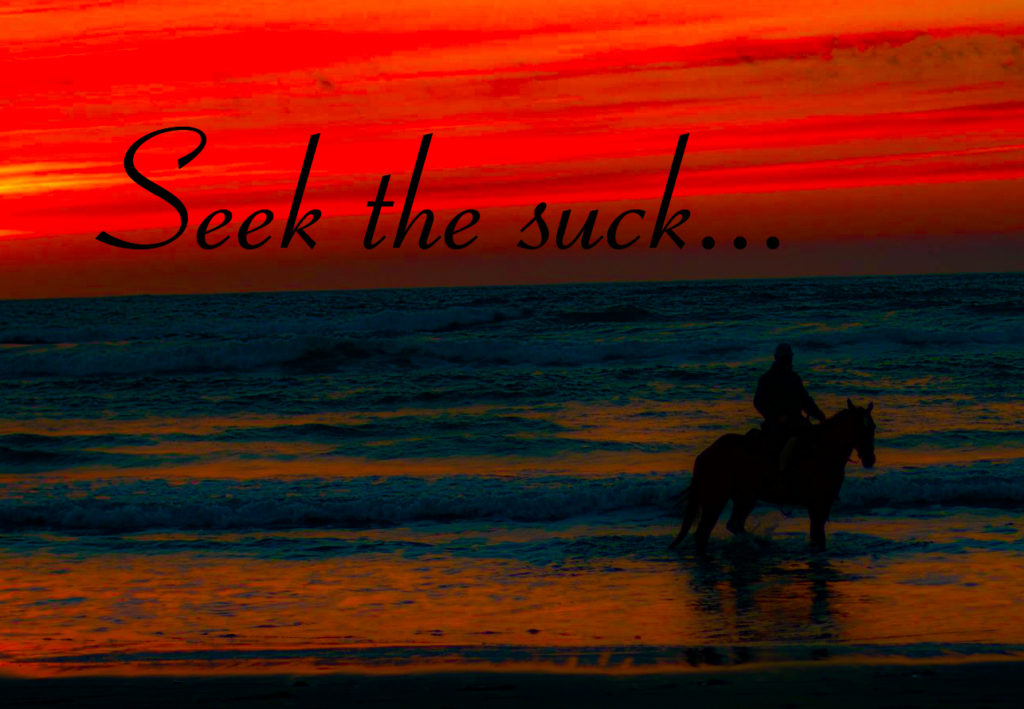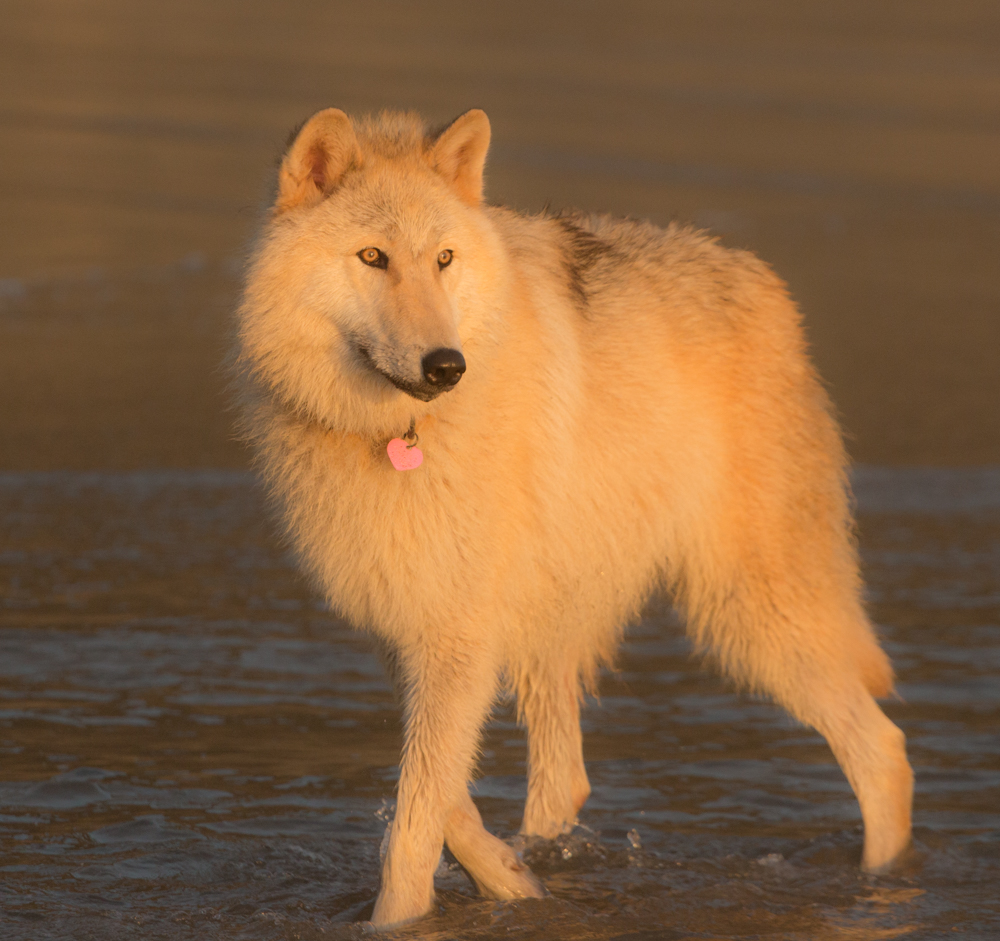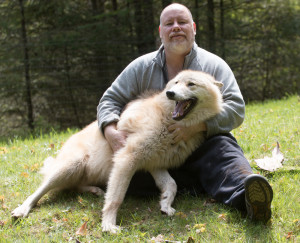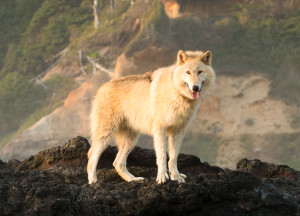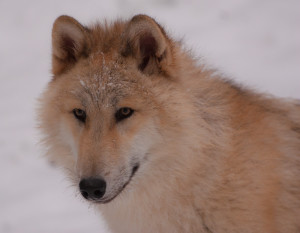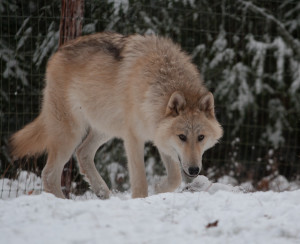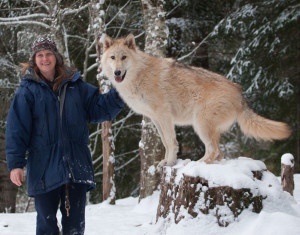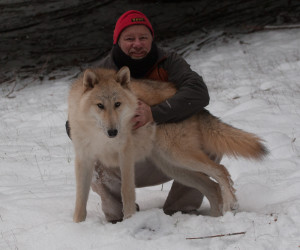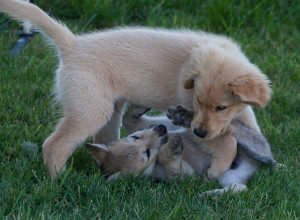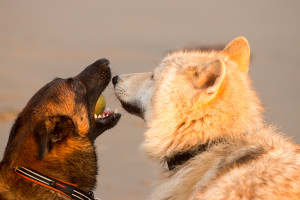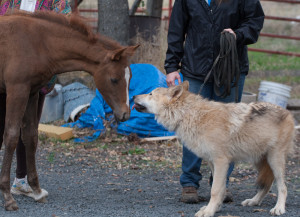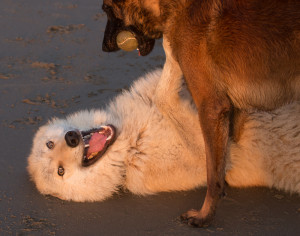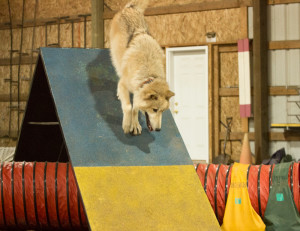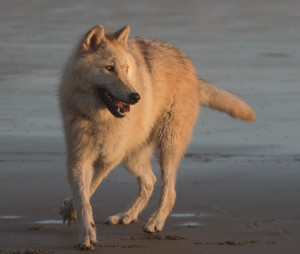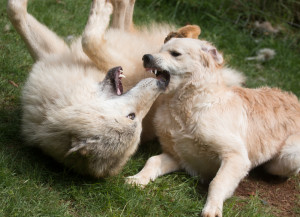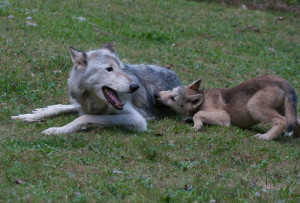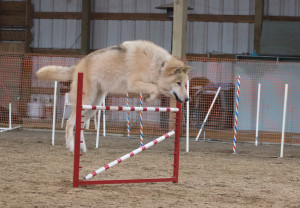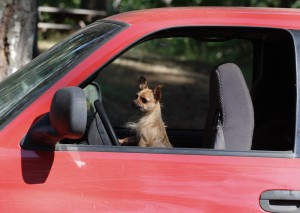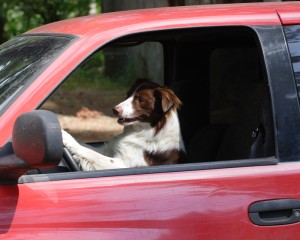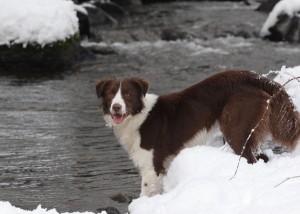 A few weeks ago, I had one of the worst experiences of my life: my dog Sequel disappeared while we were hiking in the woods around our home, and he was missing for several days and nights. Each moment he was gone was devastating, but daytime was more bearable—there was so much to be done running the search that it was easy to set aside any thoughts about him being injured or dead. We had multiple teams searching the woods and updating the search map, people driving the roads and putting up signs, people going door-to-door, people calling all the shelters, vets, daycares, etc. Busyness can be a real friend in times of anguish! Long after night fell and the searchers had gone, I would force myself to try to get a few hours of sleep, but how can you lie in a warm bed and fall asleep knowing that your dog may be lying somewhere near death hoping you will find him soon…
A few weeks ago, I had one of the worst experiences of my life: my dog Sequel disappeared while we were hiking in the woods around our home, and he was missing for several days and nights. Each moment he was gone was devastating, but daytime was more bearable—there was so much to be done running the search that it was easy to set aside any thoughts about him being injured or dead. We had multiple teams searching the woods and updating the search map, people driving the roads and putting up signs, people going door-to-door, people calling all the shelters, vets, daycares, etc. Busyness can be a real friend in times of anguish! Long after night fell and the searchers had gone, I would force myself to try to get a few hours of sleep, but how can you lie in a warm bed and fall asleep knowing that your dog may be lying somewhere near death hoping you will find him soon…

And so, instead of sleeping, during the long, dark hours agonizing about all the worst things that could be happening to my dog, I wracked my brain about what I should have done differently, what I would do differently when—if—I found him and brought him home. And I returned time and again to the same surprising answer: nothing.
I love my dogs with every fiber of my being. I love them enough that while it sometimes might make me feel better to wrap them in cocoons and cloister them away safely, I force myself to always try to make the best decision for them. Insofar as it is possible, I try to give my dogs the lives I believe they would want, with the balance of safety and adventure that they would chose if they could fully understand the issues. Most of my dogs would absolutely prefer to run in the woods, to swim in the ocean, to wrestle and leap and herd and play, even if these things come with some risk.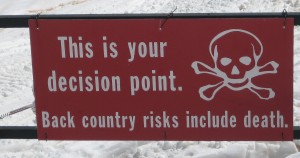
Of course, judgment is required-knowledge of your dogs, their personality and fitness and training (I would stake my life on Sequel’s recall if he could have heard me, and as soon as I got on the right side of the creek where he could, he came immediately), and the area and all the hazards so you can make an informed decision about whether to keep your dogs on leash or a long line or a GPS collar or have them loose but call them back frequently. And no matter how careful you are, there will be some risk! But for nearly 20 years we have taken many, many animals out to run, play, hike, and camp in our woods, and the tens of thousands of hours of joy, health, enrichment, fitness, and fun it has brought is more than worth the risks, and really the worst that has ever happened is a few scrapes, a few porcupine quills, and some lost sleep…Those are pretty excellent odds, and even if Sequel had died, I am certain I would feel the same.
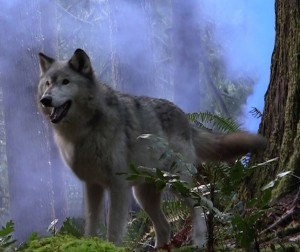
Please understand, I am not advocating recklessness: I am amazed at how often I watch people let their dogs out of a car in a parking lot and then pay no attention, or whose dogs are left unattended in homes full of hazards, or whose dogs are meeting groups of large, intense dogs while the owner is 100 feet away. Vigilance and mindful awareness are almost always to be advised with animals…
My dog is at risk in a moving car. He is at risk fetching a stick or a ball or wearing a collar. He is at risk at home that my house could catch fire. He is at risk on a dogwalk, or running in a field that might have a mole-hole. He is at risk chewing on a toy or meeting other dogs at a park. He is at risk that some lunatic will put poison on a sidewalk. Heck, I knew a dog recently who was run over while walking on leash in town… The risks from wildlife to a healthy, medium-sized dog in most areas are statistically very, very low. (of course if you live in an area in which risks are greater, you would need to behave accordingly!)
There are undoubtedly a few dogs that die from wildlife encounters each year in this country, or that get lost while out playing in the woods, or slip and fall down a cliff, but there are millions and millions of dogs that die each year obese and bored and with their bodies, minds, and spirits atrophied. And while you can never perfectly protect your pets from risk, you absolutely can save them from boredom.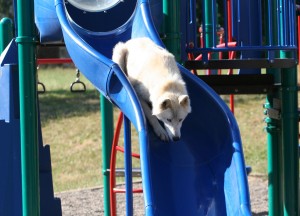
Being a good dog owner is not about avoiding risk-it is about balancing risk with richness. Life is full of adventures, opportunities, and experiences that make our dogs’ lives wonderful, but we must not be so afraid that we avoid them. I certainly cannot tell anyone else how to find their perfect balance point, but I can say that for me and my dogs, we would rather be injured or die living a rich full life than sit safely at home growing old.
One last happy thought: pursuing a full and rich life, will often have the magical side-effect of also maximizing health and longevity. Our dogs spend their lives sprinting and swimming and leaping and playing as hard as possible, and they virtually all live well into their teens. Flint, our Belgian/Border Collie mix, lies at my feet as I write this, 18 years old. And I can hardly remember a day in his life that he did not fling himself into the unknown with utter abandon and sometimes crazy disregard for any potential risk…

I could probably write more about this topic, but Sequel wants to go for a hike now—back into the same woods, to his favorite swimming hole, and to the meadow to play a fast game of chase with Fig. We may die while playing our favorite games, but first, for sure, we are going to live…
